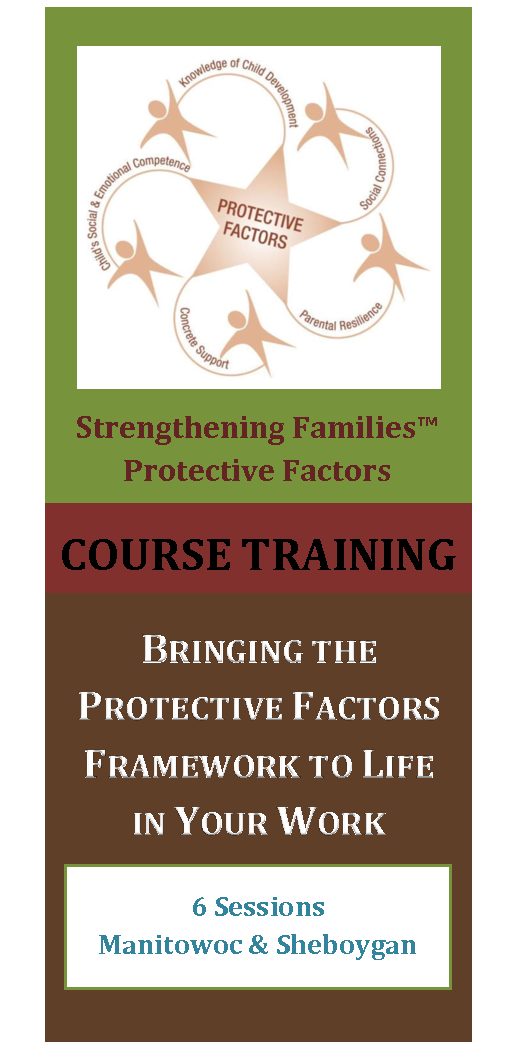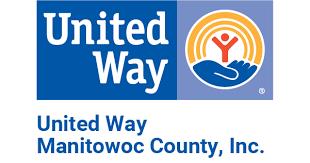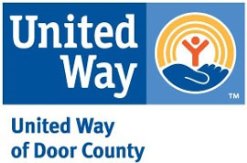FIVE PROTECTIVE FACTORS TRAINING
— Brought to you by Lakeshore CAP
Download or print: Manitowoc Brochure 2019
(6 Sessions, March through May — 11:15 AM – 1:30 PM. Lunch provided.)
Download or print: Sheboygan Brochure 2019
(6 Sessions, March through May — 11:15 AM – 1:30 PM. Lunch provided.)
♦ You MUST REGISTER for any or all sessions by calling 920.682.3737
♦ $10 per session will be billed following the end of training
♦ Course is FREE — IF you are a volunteer, student, or not being paid for your time

In 2012, the National Alliance of Children’s Trust & Prevention Funds (https://ctfalliance.org/) developed the Strengthening Families™Protective Factors Framework into a curriculum called Bringing the Protective Factors Framework to Life in Your Work. It is designed to assist professionals who work with families and children to promote the optimal development of all children while protecting vulnerable children from harm.
Six 2-hour modules make up the training, sharing ways to help practitioners, community members and parents better understand and address family needs using a strengths-based lens.
Know The Five Protective Factors!
- Parent Resilience: The ability to recover from difficult life experiences and often to be strengthened by and even transformed by those experiences
- Social Emotional Competence of Children: Family and child interactions that help children develop the ability to communicate clearly, recognize and regulate their emotions, and establish and maintain relationships
- Knowledge of Parenting and Child Development: Understanding child development and parenting strategies that support physical, cognitive, language and social emotional development
- Social Connections: Positive relationships that provide emotional, informational, instrumental and spiritual support
- Concrete Support in Times of Need: Access to concrete support and services that address a family’s needs and help minimize stress caused by challenges
Participants will leave with:
- A better understanding of how to utilize the Protective Factors Framework in your work to strengthen families
- An understanding of how culture impacts perspectives and how to best work with families
- A renewed appreciation for the value of parents as partners in your work







Join Us – Social Media